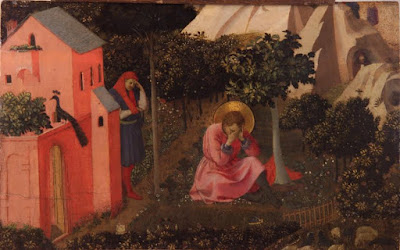By Benedict Augustine
“You are no longer strangers and sojourners,
but you are fellow citizens with the holy ones
and members of the household of God,
built upon the foundation of the Apostles and prophets,
with Christ Jesus himself as the capstone.”
Although many of my friends at church, many people in the media, and the vast well-meaning crowds around the world cheered on the election of Pope Francis, I did not share the same enthusiasm.
I loved the last pope, Benedict, a writer, a scholar of Augustine, a humble, quiet, holy man. He was not celebrity like the new pope who seemed to impress everyone with his earthy unaffected manner and vocal commitment to the poor. He preached a return to tradition while this pope preached total renewal. He rebuked the hypocrisy and irrational violence perpetuated by so many Muslims; the other has become angry against the weapons they use—and, oddly, the ones used against them. At the end of his career, Benedict humbly sought solitude, while Francis feeds off the crowds.
Little that Pope Francis has done, or said, or written, has changed my original opinion. His remarks, regardless of what might be said by apologists, reflect an obviously liberal progressive agenda. His appointments of practically heretical bishops and his silencing and demotion of traditionalists confirms this. His banal diplomacy with oppressive dictators like those in Bolivia and Cuba and utter ignorance of the Catholic faithful who dissent is nothing short of shameful. The confusion of the last two synods on the family, at a time when the family is rapidly disintegrating, occurred at his behest. While Christians suffer martyrdom and enslavement in so many part so the world, he writes an encyclical about excessive use of air conditioning and capitalism exploiting the poor even as it continues to lift billions out of poverty.
At first, I did not understand any of this, but I understand it now. Like all any good liberal, Pope Francis wants to relax standards with the hope of bringing more people in his organization. Like any good populist, Pope Francis directs his words at the poor, excusing their failures and blaming it on the wealthy. On a moral plane, he comforts chronic unrepentant sinners and blames the near-invisible minority of traditional Catholics for their lack of charity.
When a person selects the poor (or those who think they’re poor) and unrepentant sinners as their target audience, his mass appeal should surprise no one. The world will certainly cheer on Pope Francis, particularly the non-Catholics seeing an opportunity to recreate the Church in their own image.
However, despite the push to put annulments on the “fast track” and essentially turn them into Catholic divorces; despite the ambiguous language of the encyclicals, public statements, and synod documents, which reduce most moral questions into a matter of personal conscience; despite the favorable press and impressive crowds; despite all this, the Catholic Church diminishes, and the Western world grows more secular, and because of birth rates and migration, more Muslim. Perhaps Pope Francis has become popular, but his Church descends further into the doldrums, and all conscientious Catholics need to know this.
Sure enough, at this realization, many rational people would find a church that agrees with their politics. Some would probably leave the church altogether. But I will do neither. Instead, I will stay.Like Peter, the first pope, I would only ask helplessly, where else would I go?
The Church is a not political party, a sports team, or a club. It is, as Paul says, a family founded on Jesus Christ, a stronger bond than even blood relations. I cannot leave my family. As the evils of the world continue to rise like a flood, I must cling to it all the more as Noah and his family clung to ark.
The pope is not a politician, or some celebrity, or even a king. He is the father of the Catholic family, and thus my father. I will love him like a father, respect him like a father, and pray for him like father. I will also voice my disagreements because he is my father. I should also note that I have other spiritual fathers: the bishop of my diocese and the priests of my parish. They deserve even more of this treatment in proportion to their closeness to me.
Of course, those outside the family love to speculate about the Church and her public figures. They like doing this because none of this really matters to them. They do the same with the British royal family. Therefore, faithful Catholics should not fall into this behavior. We worship the Holy Trinity, not the pope. We should show loyalty to our Church, particularly to those we see every Sunday, not become partisans to a papal political agenda. We should hope in God and His grace that allows us to serve; we should not hope in a pope who happens to be popular. We seek holy purity, not ideological purity.
If in nothing else, I think Papa Francis might agree with me on these things. After all, we are not Papists. We are Catholic.









